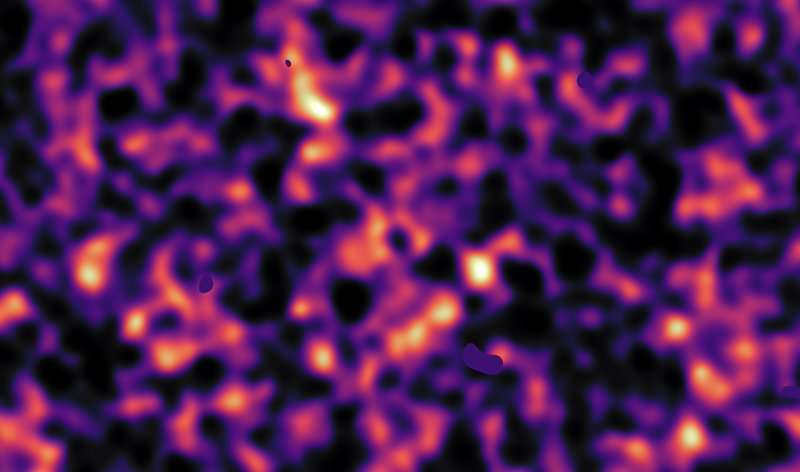Best of Last Week – Heavyweight candidate for dark matter, stardust in Antarctic snow and fasting reducing inflammation

It was another good week for physics as a team with members from the Austrian Academy of Sciences and the University of Vienna announced that they had achieved complex quantum teleportation for the first time—they found a way to teleport three-dimensional quantum states. And a team at the Norwegian University of Science and Technology solved a 127-year-old physics riddle, using math to solve the Kelvinangle boat wake problem. Also, a pair of researchers, Hermann Nicolai with the Max Planck Institute for Gravitational Physics and Krzysztof Meissner with the University of Warsaw, suggested a heavyweight candidate for dark matter—a super-heavy gravitino.
It was also a good week for technology development, as a team in Canada found a way to extract hydrogen gas from oil and bitumen as potential pollution-free energy—and it worked on a large scale. And an international team described a third wave emerging in integrated circuits making use of the interactions between sound and light. Also, a team with members from the University of California San Diego and the University of California, Riverside demonstrated that lasers could enable engineers to weld ceramics, no furnace required—allowing for the development of a whole new class of electronics.
In other news, Stephanie Olson with the University of Chicago gave a keynote address at the recent Goldschmidt Geochemistry Congress, saying that recent studies have shown that some exoplanets may have a greater variety of life than exists on Earth. Also, a team at the University of Kentucky wondered what drives inflammation in type 2 diabetes. They found it was not glucose. And a team with members affiliated with several institutions in Germany reported that they had discovered stardust in Antarctic snow—a type of iron that is not produced naturally on Earth.
And finally, if you are one of the hundreds of millions around the world suffering from one or more of types of inflammation, you might want to check out the results of work by a team at Mount Sinai Hospital—they discovered that fasting reduces inflammation and improves chronic inflammatory diseases.
© 2019 Science X Network